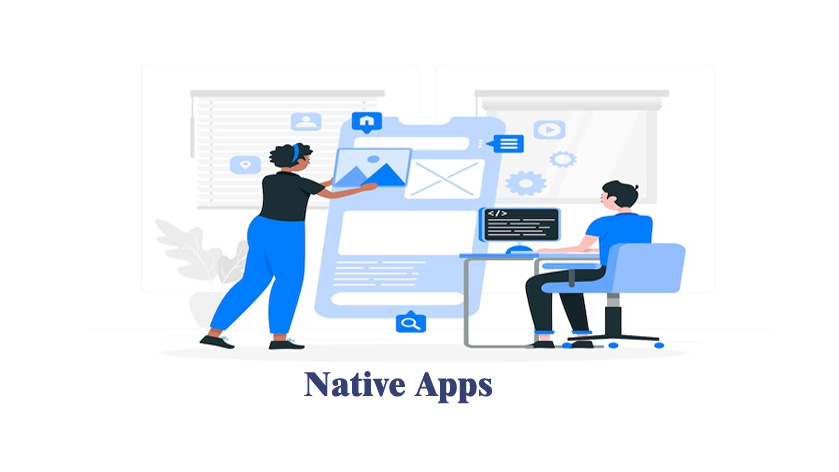Native apps are a type of app that can be downloaded and live on your device. It will function as a stand-alone program and access various features of your device to work. Native apps are not just copies of the website but have been independently developed. These applications can be made from any device, such as your laptop. For example, photo editing apps can be used offline, too. But mostly, when we talk about these apps, it is always on mobile.
A native mobile is a software developed mainly for mobile phone operating systems that run on Android and iOS. It will store data from your mobile to manage and integrate its features. For example, if you download a beauty camera app. It will use your mobile camera to work.
How Native Apps Work?
Native apps are designed and built by using platform-specific language so they can achieve better performance compared to web apps. This is because they will directly access and utilize the resources from their mobile phone.
Developers can create feature-packed applications since they will have direct access to device features such as your contact camera or GPS. These apps are available on apps like Google Play Store for Android or Apple Store for iOS. This will provide a trusted distribution channel for all users. It will provide a seamless user experience because they are designed following the platform guidelines and user interface convention.
Conclusion
In conclusion, native apps are cross-platform frameworks like Flutter, allowing developers to write code once and deploy it on various platforms. This will help balance the process between development efficiency and maintaining a good user experience because they are designed following the platform guidelines and user interface convention. The development of native apps depends on budget, resources, target audience, and project requirements.

